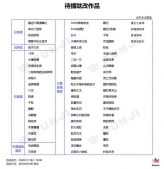脚本主要功能:
1)通过zabbix api接口采集所有监控主机ip地址;
2)通过cmdb系统(蓝鲸)接口采集所有生产主机IP地址、主机名、操作系统、电源状态;
3)以上2步返回数据对比,找出未监控主机ip地址,生成csv文件;
4)发送邮件。
脚本如下:
|
1
2
3
4
5
6
7
8
9
10
11
12
13
14
15
16
17
18
19
20
21
22
23
24
25
26
27
28
29
30
31
32
33
34
35
36
37
38
39
40
41
42
43
44
45
46
47
48
49
50
51
52
53
54
55
56
57
58
59
60
61
62
63
64
65
66
67
68
69
70
71
72
73
74
75
76
77
78
79
80
81
82
83
84
85
86
87
88
89
90
91
92
93
94
95
96
97
98
99
100
101
102
103
104
105
106
107
108
109
110
111
112
113
114
115
116
117
118
119
120
121
122
123
124
125
126
127
128
129
130
131
132
133
134
135
136
137
138
139
140
141
142
143
144
145
146
147
148
149
150
151
152
153
154
155
156
157
158
159
160
161
162
163
164
165
166
167
168
169
170
171
172
173
174
175
176
177
|
#!/usr/bin/python#coding:utf-8import requestsimport jsonimport reimport timeimport csvfrom collections import Counterimport smtplibfrom email.header import Headerfrom email.mime.text import MIMETextfrom email.mime.multipart import MIMEMultipartfrom email.mime.application import MIMEApplication# 从cmdb系统获取虚拟化生产主机ipdef getCmdbProdHost(): url1 = 'http://paas.xxxx.com/api/c/compapi/v2/cc/search_inst/' data1 = { "bk_app_secret": "**********************", "bk_app_code": "bk_cmdb", "bk_username": "admin", "bk_obj_id": "host", "page": { "start": 0, "limit": 2000, "sort": "bk_inst_id" }, "fields": { "host": [ "bk_host_id", "bq_hostname", "bk_host_innerip", "bq_hosttype", "powerState", "bq_osname" ] } } r1 = requests.post(url1, json=data1) response_dict1 = r1.json() #print(response_dict1) prodip_dict = {} testip = "10.210.xx|10.210.xx|10.210.xx|10.210.xx|xx.xx.xx" #测试网段ip for i in response_dict1.get('data')["info"]: if i["bq_hosttype"] == "t2" and i["powerState"] == "poweredOn" and not re.search("UAT", i["bq_hostname"]) and not re.match(testip, i["bk_host_innerip"]): prodip_dictkey = i["bk_host_innerip"] #prodip_dictvalue = i["bq_hostname"] prodip_dictvalue = [i["bq_hostname"], i["bq_osname"], i["powerState"]] prodip_dict[prodip_dictkey] = prodip_dictvalue return prodip_dict#获取zabbix系统登录认证def getZabToken(url, post_headers, url_user, url_password): post_data = { "jsonrpc": "2.0", "method": "user.login", "params": { "user": url_user, "password": url_password }, "id": 1 } ret = requests.post(url, data=json.dumps(post_data), headers=post_headers) return json.loads(ret.text).get("result")def getZabHost(url,post_headers,token): data = { "jsonrpc": "2.0", "method": "host.get", "params": { "output": [ "hostid", "host" ], "selectInterfaces": [ "interfaceid", "ip" ] }, "id": 2, "auth": token, } request = requests.post(url, headers=post_headers, data=json.dumps(data)) dict = json.loads(request.content) zab_ip = [] for i in dict['result']: zab_ip.append(i['host']) return zab_ipdef compare(zabhostlist, cmdbhostdict): zabbixiplist = Counter(zabhostlist) cmdbiplist = Counter(list(cmdbhostdict.keys())) nomonip = {} for i in list((cmdbiplist - zabbixiplist).elements()): nomonip_value = cmdbhostdict[i] nomonip_key = i nomonip[nomonip_key] = nomonip_value print(nomonip) return nomonipclass writeToCsv(object): def __init__(self,data,info): self.data = data self.info = info def write_to_csv(self): rows = self.data info = self.info csvfile = "zabbix未监控生产系统IP列表" + info + time.strftime('_%Y%m%d%H%M%S', time.localtime(time.time())) + ".csv" # print(csvfile) # 创建文件对象 f = open(csvfile, 'w', newline='') # 通过文件创建csv对象 csv_write = csv.writer(f) # writerow: 按行写入, writerows: 是批量写入 # 写入数据 取列表的第一行字典,用字典的key值做为头行数据 # csv_write.writerow(rows[0].keys()) csv_write.writerow(["未监控生产IP", "主机名", "操作系统", "电源状态"]) # 循环里面的字典,将value作为数据写入进去 ip = list(rows.keys()) hostname = list(rows.values()) for row in range(len(ip)): csv_write.writerow([ip[row], hostname[row][0], hostname[row][1], hostname[row][2]]) # 关闭打开的文件 f.close() print("读写完成:",csvfile) return csvfiledef sendmail(csvfile,receiver): sender = 'xxx@xxx.com' smtpserver = 'xx.xx.xx.xx' username = 'xxx@xxx.com' password = '******' mail_title = 'zabbix未监控生产主机IP地址' # 创建一个带附件的实例 message = MIMEMultipart() message['From'] = sender message['To'] = ','.join(receiver) message['Subject'] = Header(mail_title, 'utf-8') # 邮件正文内容 message.attach(MIMEText('每日自动统计监控覆盖率', 'plain', 'utf-8')) # 构造附件 att1 = MIMEApplication(open(csvfile, 'rb').read()) # 打开附件 att1.add_header('Content-Disposition', 'attachment', filename=csvfile) # 为附件命名 message.attach(att1) smtpObj = smtplib.SMTP_SSL() # 注意:如果遇到发送失败的情况(提示远程主机拒接连接),这里要使用SMTP_SSL方法 smtpObj.connect(smtpserver) smtpObj.login(username, password) smtpObj.sendmail(sender, message['To'].split(','), message.as_string()) print("邮件发送成功!!!") smtpObj.quit()if __name__ == '__main__': url = 'http://xx.xx.xx.xx/api_jsonrpc.php' #zabbix监控系统接口地址 post_headers = {'Content-Type': 'application/json'} url_user = "Admin" url_passwd = "******" auth = getZabToken(url,post_headers,url_user,url_passwd) zabhostlist = getZabHost(url,post_headers,auth) #获取zabbix监控主机ip地址列表 cmdbhostdict = getCmdbProdHost() #获取cmdb主机地址列表 #zabbix监控主机和cmdb主机做比较 data = compare(zabhostlist, cmdbhostdict) #导出csv文件 info = '统计' write = writeToCsv(data, info) resp = write.write_to_csv() receiver = ['hushanshan2@bngrp.com'] #y邮件接收人,多人用逗号区分开 sendmail(resp, receiver) |
到此这篇关于python自动统计zabbix系统监控覆盖率的文章就介绍到这了,更多相关python统计zabbix内容请搜索服务器之家以前的文章或继续浏览下面的相关文章希望大家以后多多支持服务器之家!
原文链接:https://www.cnblogs.com/huss2016/p/14612203.html





